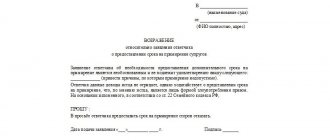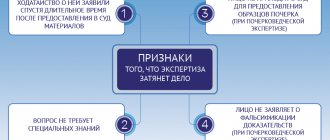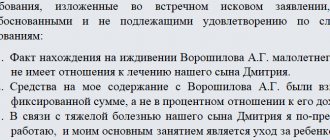In the national justice system, one of the leading roles is assigned to arbitration courts.
Their specificity lies in the consideration of a special category of disputes.
For the most part, these are economic disputes, cases related to challenging various acts, corporate conflicts, as well as bankruptcy of enterprises, entrepreneurs and ordinary citizens.
In the Russian Federation, arbitration proceedings can be carried out at 4 levels.
- The first of them is the arbitration courts of first instance. Claims and applications are directly filed there with a request to resolve a particular dispute. The structure of the arbitration courts of first instance consists of the courts of regions, republics, territories, and cities of federal significance.
- In case of disagreement with the decision made, it can be appealed. This is why there are appellate arbitration courts.
- If, after this, a party to the process cannot come to terms with the decision made, then it has the right to file a cassation appeal with the cassation arbitration court of the relevant district of the Russian Federation.
- The last link in the system of arbitration courts of the Russian Federation has recently been the Supreme Court. He mainly plays the role of a supervisory authority.
Now let's look at the main types of legal proceedings carried out today in arbitration courts.
Is it possible even faster?
In accordance with Article 228 of the Arbitration Procedure Code of the Russian Federation, “simplified” cases must be considered within a period not exceeding a month from the date of receipt of the statement of claim by the arbitration court, including the period for preparing the case for trial and making a decision on the case.
The process in this case looks like this.
- The plaintiff, along with the statement of claim, submits a petition for consideration of the case through summary proceedings.
- If the court satisfies this request, the court issues a ruling on consideration of the case in summary proceedings, which sets a fifteen-day period for the parties to submit objections to consideration of the case in summary proceedings, as well as for submitting a response to the stated requirements or other evidence.
- If the defendant does not object to a summary hearing of the case, the court, without summoning the parties, examines the evidence presented and makes a decision.
Calculation of procedural deadlines
It is important to know exactly how procedural deadlines are calculated, what serves as the starting point and ends the course of the period.
Procedural deadlines for performing a procedural action may be determined by: (1) the exact calendar date; (2) an indication of an event that must necessarily occur; (3) period of time.
In the latter case, the action can be performed during the entire period.
Determining the deadline by an exact calendar date is necessary, for example, when a case is adjourned by a hearing.
The judge is obliged to indicate the date of the next court hearing and notify the persons participating in the case in advance (persons present in the courtroom are notified immediately, which is recorded in the minutes of the court session). In contrast, the period for correcting deficiencies in the application can only be determined by a period of time.
Procedural periods are calculated in years, months and days. Periods calculated in days do not include non-working days.
Start of term
The course of the procedural period, calculated in years, months or days, begins the next day after the calendar date or day of the occurrence of the event that determines the beginning of the procedural period (Part 3 of Article 113 of the APC).
End of term
The day of the end of the procedural period is determined in accordance with Art. 114 APK.
The procedural period, calculated in years, expires in the corresponding month and date of the last year of the established period. ^so, if the calendar date of the event that determines the beginning of the procedural period of one year is April 14, 2007, then the course of this period began on April 15, 2007, the day of its end will be April 14, 2008.
The procedural period, calculated in months, expires on the corresponding date of the last month of the established period.
If the end of a procedural period calculated in months falls on a month that does not have a corresponding date, the period expires on the last day of that month.
If the calendar date of the event that determines the beginning of the procedural period of one month is April 18, 2007 (for example, on this day the full text of the decision of the court of first instance was prepared), then the course of this period began on April 19, 2007, the day it ended will be May 18, 2007
The procedural period, calculated in days, expires on the last day of the established period.
If the last day of the procedural period falls on a non-working day, the end of the period is considered to be the first working day following it.
In all other cases, neither weekends nor holidays are taken into account, the period runs continuously.
A procedural action for which a time limit has been established can be completed before twenty-four hours of the last day of the time limit.
If the complaint, documents or sums of money were submitted by post or telegraph before twenty-four hours of the last day of the deadline, then the deadline is not considered missed, even if these documents arrived at the court with a significant delay (Part 6 of Article 114 of the APC).
The period ends at 24 hours of the last day, and not at the end of the institution’s work, unless we are talking about actions that must be performed specifically in court.
Evidence of timely delivery of documents to the post office can be a postmark on a postal item, a postal or telegraph receipt, an extract from the register of postal items, which are attached to the case.
If a procedural action must be performed directly in an arbitration court or other organization, the period expires at the hour when, according to established rules, the working day in this court or this organization ends or the corresponding operations are terminated (Part 7 of Article 114 of the APC).
The end of the period for consideration of the case is the day the court makes a decision on the merits of the dispute or a ruling to terminate its proceedings or leave the claim without consideration.
The right to perform procedural actions is extinguished upon the expiration of the period established by law or appointed by the court.
Complaints and documents submitted after the expiration of procedural deadlines are left without consideration.
Missing official deadlines does not entail the termination of the court’s obligation to perform a procedural action.
The court is obliged in any case to take the necessary procedural action, even if it is late.
In what cases does the process take longer?
1. Deadlines may not be met. This happens, and instead of the month or two allotted by law, more time actually passes. The reasons are different - the judge may fall ill, the judge may have so many cases that it is physically impossible to consider the case on time, etc.
2. The decision made by the court may be appealed. Each party has the right to appeal the decision of the arbitration court through appeal and cassation procedures. In case of appeal, the same case is considered in the court of second instance, which takes several more months.
3. The case may be suspended by the court. In a number of cases, the arbitration court is obliged to suspend the proceedings in the case, for example, if it is impossible to consider the case until the resolution of another case considered by the Constitutional Court of the Russian Federation, the constitutional (statutory) court of a constituent entity of the Russian Federation, a court of general jurisdiction, or an arbitration court.
In some cases, the court has the right to suspend the case, for example, to conduct an examination.
Brief conclusion
From the above it is clear that by filing a claim in court four months later it is quite possible to have a court decision that has entered into force. And this is not so much.
of your page —>
Time limits and procedure for considering cases in arbitration courts, the procedure for appealing decisions
The main function of arbitration courts is to administer justice in the field of business and other economic activities. Their competence includes consideration of cases related to disputes between individual business entities, recognition of financial insolvency (bankruptcy) of individual entities, resolution of disputes related to registration, change in the organizational and legal form of a legal entity and its liquidation.
Time limits for consideration of cases in the Arbitration Court of the Russian Federation
The deadlines for making decisions on cases within the jurisdiction of arbitration courts are:
- In the first instance - no more than 3 months from the date of filing the application with the court (including the time to prepare the case for trial and make a decision).
- The three-month period can be extended to 6 months only on the basis of a decision of the chairman of the arbitration court and in the presence of a reasoned appeal from the judge. The reason for the extension may be the particular complexity of the case or a significant number of participants in the process.
- In the event that judicial proceedings are postponed or suspended, the period for stopping the process is not included in the total period of consideration (3 or 6 months)
Procedural procedures that increase time limits
As mentioned above, the terms of claim proceedings are determined by the APC and cannot be set independently by judges. However, during the process, circumstances often arise that delay the moment of making a final decision. Thus, the following procedures lead to an increase in time:
- interruption of the deadline;
- suspension of legal proceedings;
- adjournment of consideration;
- extension of the review period.
For each of these points, the code provides reasons, the lists of which can be either open (for suspension) or closed (for adjournment). If a dispute arises about compliance with the principle of reasonableness of the overall duration of legal proceedings (Article 6.1 of the Arbitration Procedure Code of the Russian Federation), then all decisions of the judge regarding changes in the timing of the consideration of the case will be assessed from the point of view of the validity of their adoption.
Procedure for considering cases in arbitration courts (simplified general scheme)
Stage 1. Submitting a statement of claim
The statement of claim is submitted in the prescribed form in writing and with the signature(s) of the plaintiff or his representative(s). The list of details that must be reflected in the claim is given in paragraph 2 of Article 125 of the Arbitration Procedure Code of the Russian Federation. It should also be remembered that the plaintiff is obliged to send to other participants in the case copies of the statement of claim and its attachments by registered mail with notification.
Within five days, a decision is made on accepting the application and starting proceedings, leaving the application without progress or returning the application.
Stage 2. Preparation for trial
Preparation for the case is carried out directly by the judge of the arbitration court, during which the nature and circumstances of the dispute are clarified, the issue of the participants in the process is resolved, and the prerequisites are created for reconciliation of the parties.
Stage 3. Court proceedings (if no peace agreement has been concluded or a decision has been made to suspend proceedings)
The court notifies the participants of the time and place of the court hearing. The court examines all the evidence presented by the parties, after which a debate between the parties is scheduled.
Stage 4. Decision making
The decision is made based on the result of resolving the dispute between the parties. It can be adopted separately for each of the claims combined in one case. The decision is drawn up in one copy and attached to the case materials, after which it is announced to the persons presiding at the court hearing.
Stage 5. Appealing the decision of the arbitration court
The decision of the court of first instance can be appealed to the arbitration court of the appellate instance within a month, as well as to the arbitration court of the cassation instance in the following situations:
- The case was the subject of consideration by the appellate court.
- The appellate authority has in the past refused to reinstate the deadline for filing an appeal. complaints
General term and exceptions
The total period for consideration of the case in the arbitration court should not exceed 3 months - from the moment the statement of claim is sent until the decision is made.
But there are also exceptions. For some types of cases, decisions are made in a shorter or longer time frame:
- On awarding compensation for violation of the right to trial – 2 months.
- Appeal, cassation, supervisory complaints, including in the Supreme Court of the Russian Federation - 2 months.
- On bringing to administrative liability, on challenging decisions of administrative bodies - 2 months.
- On compelling a legal entity to convene a general meeting – 1 month.
- On the protection of the rights and interests of a group of persons – 5 months.
- In simplified proceedings – 2 months.
- Preparation of a court order – 10 days.
- Applications to cancel an arbitration decision – 3 months.
- Application for recognition and enforcement of a decision of a foreign court (foreign arbitration court) – 3 months.
Often these deadlines are not met due to workload. And in practice, it takes about six months to consider a case in the court of first instance.
How it works: new terms, prejudices and other changes in the agrarian and industrial complex and civil procedure code
New procedural terms
Changes in the APC 6 months instead of 3 for consideration of a case in the court of first instance (and 9 months instead of 6 for particularly complex cases);
5 days instead of 3 – to submit comments on the protocol;
3 months instead of 6 – to file an application for recovery of legal costs;
12 months instead of 6 – to file a petition to restore the missed deadline (the Civil Procedure Code also gives 12 months for this).
The period for consideration of an arbitration case in the first instance has been extended twice – to six months instead of three. Lawyers differed in their assessments of the innovation. Partner of Pepelyaev Group Pepelyaev Group Federal rating. group Foreign trade activities/Customs law and currency regulation group Tax consulting and disputes (Tax consulting) group Tax consulting and disputes (Tax disputes) group Labor and migration law (including disputes) group Digital economy group Antimonopoly law (including disputes) group Land law/Commercial real estate/Construction group Intellectual property (including disputes) group Compliance group Natural resources/Energy group Pharmaceuticals and healthcare group Environmental law group Bankruptcy (including disputes) group Corporate law/Mergers and acquisitions group Family and inheritance law TMT group (telecommunications, media and technology ) group Financial/Banking Law group Arbitration proceedings (major disputes - high market) group Dispute resolution in courts of general jurisdiction Yuri Vorobyov believes that “the legislation is simply brought into line with reality.” He is supported by the head of the dispute resolution and bankruptcy practice of Maxima Legal Maxima Legal Regional rating. group Land law/Commercial real estate/Construction group Intellectual property (including disputes) group Corporate law/Mergers and acquisitions group Tax consulting and disputes group Bankruptcy (including disputes) group Criminal law group Arbitration proceedings Sergey Bakeshin: “In practice, arbitration courts rarely have time to consider matter within three months.”
3,5%
so many cases are being considered by arbitration courts in violation of deadlines
Senior partner has a different opinion INTELLECT INTELLECT Federal rating. group Digital economy group Intellectual property (including disputes) TMT group (telecommunications, media and technology) 13th place By number of lawyers 25th place By revenue per lawyer (more than 30 lawyers) 36th place By revenue Company profile Roman Rechkin. He doesn't see the need to give more time because in most cases three months is enough. And if the dispute is complex, the current law makes it possible to increase the period, adds Dentons partner Roman Zaitsev. This opinion is confirmed by statistics from the Judicial Department under the Supreme Court: in 2017, arbitration courts considered only 3.5% of cases in violation of deadlines.
More time to consider a case is beneficial for judges, but not for the parties, Rechkin believes: disputes will be resolved “slowly,” and there will be more delays and interruptions. Arbitration courts rarely impose interim measures, so your defendant will have more time to withdraw assets, comments managing partner of the law firm Rustam Kurmaev and Partners Rustam Kurmaev and Partners Federal Rating. group Criminal law group Arbitration proceedings (major disputes - high market) group Bankruptcy (including disputes) group Dispute resolution in courts of general jurisdiction 1st place By revenue per lawyer (less than 30 lawyers) 6th place by revenue Company profile Rustam Kurmaev.
The deadline for submitting comments on the protocol has been extended. Lawyers welcome this. The countdown begins when the protocol is signed by the judge, and not when you receive it, notes Natalya Kasatkina from AB S&K Vertical S&K Vertical Federal Rating. group Family and inheritance law group Private wealth management group Arbitration proceedings (major disputes - high market) group Bankruptcy (including disputes) group Corporate law/Mergers and acquisitions 18th place By revenue 25-27th place By number of lawyers 6th place By revenue per lawyer (more than 30 lawyers ) . According to her, the dates of preparation and actual signing of the document often do not coincide and the issuance procedure takes time. Therefore, it is difficult to prove that comments were submitted on time, the expert shares.
At the same time, Kasatkina is not happy that it is possible to file a petition to restore the procedural period within 12 months, not six months. “A person learns about a judicial act that allegedly violates his rights, waits a year and only then decides to restore the period for appeal,” the lawyer argues. “And the one who prevails in the dispute cannot be completely sure of the final victory for at least a year.”
“Another step towards a lawyer’s monopoly”
The arbitration process, like the administrative process, will become professional: to participate in the process as a representative, you will need to present a diploma of higher legal education or confirm an academic degree in a legal specialty. The APC will indicate a couple of exceptions to the general rule - these are patent attorneys, arbitration managers and “other persons specified in federal law” [not yet specified].
In civil proceedings, little will change, because the requirement will not apply to cases of magistrates and district courts, that is, the vast majority of disputes.
Limiting representatives in the arbitration process is another step towards a lawyer’s monopoly, Kurmaev believes.
But the question remains how other non-lawyers who have specialized knowledge will participate in the case. For example, this is the chief accountant in a tax dispute, and on the opposite side is an inspector who conducted the audit, but does not have a senior legal position. Such persons cannot be specialists, because a specialist should not be interested in the case, argues Ivan Veselov, partner at Bryan Cave Leighton Paisner (Russia) LLP Bryan Cave Leighton Paisner (Russia) LLP Federal rating. foreign trade group/Customs law and currency regulation group PPP/Infrastructure projects group Land law/Commercial real estate/Construction group Intellectual property (including disputes) group Compliance group Corporate law/Mergers and acquisitions group International arbitration group Tax consulting and disputes (Tax disputes) group Natural resources/Energy group TMT (telecommunications, media and technology) group Transport law group Pharmaceuticals and healthcare group Financial/Banking law group Digital economy group Antitrust law (including disputes) group Arbitration proceedings (major disputes - high market) group International litigation group Tax consulting and disputes (Tax consulting) group Labor and migration law (including disputes) group Family and inheritance law group Criminal law group Private wealth management group Bankruptcy (including disputes) 3rd place By revenue 3rd place By number of lawyers 5th place By revenue per lawyer (more than 30 lawyers) Company profile. According to him, the second possible status is a witness, but this puts the employee at risk. After all, he is warned about criminal liability, and opponents can ask him their questions, Veselov warns.
He pointed out another problem. Is a diploma required to photograph case materials, obtain copies of judicial acts, and so on. “If only people with higher legal education can do this, their services will be expensive for companies,” warns Veselov.
He suggests that the legislator left open the possibility in the future to establish other exceptions to the general rule when he indicated “other persons”.
Arbitration challenges according to the rules of the SOJ
The rules for challenging arbitration court judges are changing. Now this issue is being considered by the chairman of the judiciary, deputy chairman or chairman of the court. From September 2021, judges will decide on their own recusal.
Challenges of judges are rare. According to Caselook statistics, no more than 10% of such applications are satisfied, shares statistics from Alla Bitarova from Delcredere Delcredere Federal Rating Agency. group Arbitration proceedings (major disputes - high market) group Bankruptcy (including disputes) Company profile. The new norm will be completely “dead,” Bitarov expects. Now challenges also practically do not work, Rechkin confirms, but according to his observations, a statement to a higher judge sometimes allows him to “bring to his senses” his colleague who does not comply with the APC.
so many recusal requests are granted
Indeed, most often challenges are filed because the party does not agree with the behavior of the judge, who, for example, refuses petitions or the inclusion of evidence, notes Evgeny Pugachev from the law firm Intellectual Capital Intellectual Capital Federal Rating. group Intellectual property (including disputes) group Arbitration proceedings (medium and small disputes - mid market). Real reasons for recusal, according to his observations, are rare; the judge can evaluate them independently. “If there are good reasons, but the court refused, I believe that its decision can be canceled as made in an illegal composition,” the lawyer argues.
Pugachev, unlike his colleagues, does not support the model from the agro-industrial complex, because he sees in it more opportunities for abuse. For example, it allows the process to be delayed, because from the moment the challenge is filed, the case is put on pause - the judge is temporarily not entitled to consider it. “This is a way to disrupt a court hearing,” agrees Dentons partner Dentons Federal Rating. group Antitrust law (including disputes) group Land law/Commercial real estate/Construction group Intellectual property (including disputes) group Compliance group Corporate law/Mergers and acquisitions group International litigation group Tax consulting and disputes (Tax consulting) group Tax consulting and disputes ( Tax disputes) group Capital markets group Labor and migration law (including disputes) group Pharmaceuticals and healthcare group Financial/Banking law group Digital economy group Arbitration proceedings (medium and small disputes - mid market) group Foreign trade activities/Customs law and currency regulation PPP group/ Infrastructure projects group International arbitration group Natural resources/Energy group Dispute resolution in courts of general jurisdiction group TMT (telecommunications, media and technology) group Transport law group Private wealth management group Bankruptcy (including disputes) 2nd place By the number of lawyers Zaitsev. Once he was faced with a situation where a recusal was announced first to the composition of the court that was considering the case, and then to the chairman of the court who was considering the application for recusal. According to Zaitsev, a different order will not affect the overall statistics in any way, but there should be less abuse.
New prejudices
In arbitration and civil proceedings, new grounds for prejudice have appeared - now it is not only a “court verdict in a criminal case”, but also “other court decisions in this case”. In civil proceedings, decisions in cases of administrative offense will be considered prejudicial (previously they were ordinary evidence, which, as is known, does not have pre-established force).
As Kurmaev suggests, by “other court decisions in a criminal case,” the legislator meant cases “when the prosecution of a person is terminated due to an amnesty or due to statutes of limitations.” But such a broad formulation, according to the expert, also includes intermediate acts. For example, a decree on a search of a home, on the selection of preventive measures. “All this is now a prejudice, and it is not clear what the judges will do about it in the arbitration process,” Kurmaev shrugs.
Dmitry Uryakin from Maxima Legal cannot approve of the new prejudice in the form of decisions in cases of administrative offenses. “When the court considers a case of an administrative offense, it actually takes the side of the prosecution,” explains the lawyer. “The consideration of such cases is not based on the adversarial principle.”
Competence instead of jurisdiction
“Jurisdiction” is replaced by “competence”, but in addition to replacing the terms, the procedural rules themselves change slightly. If the court determines that the case should be considered by a court of another system, it does not terminate the proceedings, but transfers the materials “according to its competence.”
Will there be abuses associated with “migration” to a court of general jurisdiction for interim measures, Kurmaev wonders. “If a person receives seizure of property in the SOYU, and then the dispute is transferred to an arbitration court, will it cancel the measures,” the lawyer argues. It’s strange to imagine how one court will continue actions after another, says Veselov: “There is no mechanism for how an arbitration court can cancel a ruling made by a court of general jurisdiction, replace one interim measure with another, and so on.”
It is not yet clear at all whether the interim measures taken by the incompetent court are preserved, and whether the new court is bound by them, says Alexey Gurin from KIAP KIAP Federal Rating. group Arbitration proceedings (medium and small disputes - mid market) group Compliance group Family and inheritance law group Intellectual property group (including disputes) group Dispute resolution in courts of general jurisdiction group Labor and migration law (including disputes) group Criminal law group Antimonopoly law (including disputes) group Foreign trade/Customs law and currency regulation group Land law/Commercial real estate/Construction group Corporate law/Mergers and acquisitions group International arbitration group TMT (telecommunications, media and technology) group Financial/Banking law group Bankruptcy (including disputes) group Tax consulting and disputes (Tax consulting) Company profile. At the same time, he is convinced that abuses are unlikely to become widespread. According to him, in most cases the issue will be resolved at the stage of filing a claim. A senior lawyer at DS Law DS Law Federal Rating has a different opinion. group Intellectual Property (including disputes) group Corporate Law/Mergers and Acquisitions TMT group (telecommunications, media and technology) Tatyana Voronina: “Migration” is quite possible, including for obtaining interim measures, as well as interrogation of witnesses and others.” To solve the problem, it is necessary for arbitration courts to change their policy regarding interim measures, Voronina emphasizes.
- Putin signed the “procedural revolution”
November 29, 11:55 - New courts and “procedural revolution”: how the judicial reform went
January 9, 11:16
Kurmaev outlined another situation related to evidence: a conditional district court in the outback will collect evidence, order an examination, interview witnesses, and then the Arbitration Court of Moscow will receive the case, which will be connected by the evidence base collected elsewhere. Veselov agrees that, within the meaning of the new norms, the case is being transferred in its entirety, but does not see a big problem in this: the new court will be free to evaluate the available evidence according to its own conviction.
Returning to the issue of terms, Rechkin adds that the courts may have questions about whether the old clarifications on jurisdiction from the Supreme Arbitration Court and the Supreme Court remain valid.
About the right to speak
The presiding judge will be able to limit the right to speak of a participant if he “arbitrarily breaks the sequence of speeches, twice fails to comply with the requirements of the presiding officer, makes rude or offensive statements, or calls for actions punishable by law.”
The expression “twice fails to comply with the requirements of the presiding officer” is too broad and vague, it is not clear what these requirements are, Veselov shares his doubts. The only instrument of counteraction is objections, but they are considered by the same presiding officer, Kurmaev points out.
“Sometimes the court simply does not listen to the parties or representatives,” says a partner at Padva & Epstein Padva & Epstein Federal Rating. 29th place By number of lawyers Pavel Gerasimov. “Now he can stop listening legally.”
Note to the lawyer: what else is changing?
In the arbitration process, according to the rules of simplified proceedings, cases with a claim value of up to 400,000 rubles will be considered. for individual entrepreneurs and up to 800,000 rubles. for legal entities. For public law cases, the threshold of 100,000 rubles remains. The writ proceedings under the agrarian and industrial complex and the civil procedure code are being unified: a single amount of claims has been established within 500,000 rubles.
The appeal in the arbitration process will be returned if there is no signature or authority is not confirmed.
Appeals against rulings of arbitration courts, except for rulings in bankruptcy cases, will be considered individually. According to Bakeshin from Maxima Legal, this will make the appeal procedure faster and easier.
If the claim is rejected due to missing the statute of limitations or missing the deadline for going to court, then the decision indicates only these circumstances. Judges will not have to evaluate other evidence or the parties' arguments.
The rules for notifying foreign participants in the process in the agrarian and industrial complex are changing. For example, the notice period is extended.
Courts of general jurisdiction will post information about the place and time of the hearing on the Internet no later than 15 days before the start of the hearing.
In civil proceedings, immediately after the preliminary hearing, the court may open the main hearing if the materials are prepared and the participants do not mind. This should speed up the processing of cases.
A chapter on settlement agreements has appeared in the Code of Civil Procedure. In particular, the court may suspend the proceedings in order for the parties to try to reconcile.
Federal Law of November 28, 2021 No. 451-FZ “On Amendments to Certain Legislative Acts of the Russian Federation.”
- Evgenia Efimenko
- Arbitration process
- Civil process






